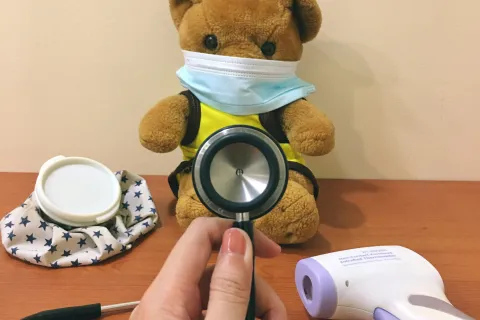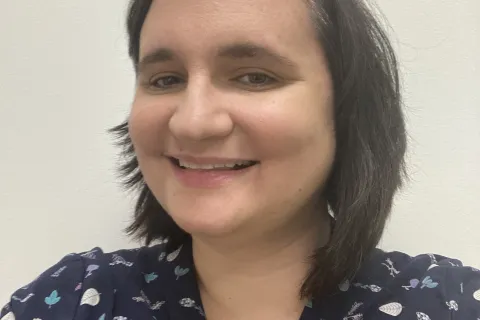Help! Our Adult Son Has Severe Autism and Extremely Narrow Diet

“Our grown son - who's severely affected by autism and living in a group home - no longer eats anything but white-bread bologna sandwiches. We're really concerned about his health. What can we do or where can we find help?”

Today’s “Food for Thought” answer is by psychologists Benjamin Handen, Cathleen Wolfe and Cynthia Johnson (left to right). All three are board-certified behavior analysts on staff at the University of Pittsburgh Medical Center, which is part of the Autism Speaks Autism Treatment Network.
Thank you for your question. As you likely know, selective eating is a common problem among individuals who have autism spectrum disorder. However, in your son’s case, it sounds like this is a more recent problem or a longstanding one that’s become more severe.
Your son might be meeting most of his nutritional needs through his narrow diet. However, we agree that he would likely benefit from some fruits and vegetables along with a daily vitamin or other supplement. And expanding your son’s diet will make it easier for him to participate in community and family activities.
From the standpoint of your son’s overall health, we suggest beginning by discussing his eating habits with his primary-care provider. It’s particularly important that your son be assessed for GI and dental issues that could be causing his new food selectivity. We also recommend that your son be seen by a registered dietician to discuss nutritional support. The Autism Speaks Resource Guide includes local contact information for dieticians and other specialists who work with individuals affected by autism. Follow the text link and click on your state.
Once you have input from your son’s doctor and dietician, you can work with the group-home staff to develop a plan that gradually expands his eating choices.
Developing a plan
In developing a realistic intervention, we strongly recommend you begin by thoroughly reviewing your son’s situation. Take into consideration his past eating history, food likes and dislikes, even his texture preferences. The dietician may be able to help you with this assessment.
In addition, we’ve found that the following general principles are especially important when trying to expand the diet of a “selective eater” who has autism:
Start small.
Start with minimal changes in your son’s foods and eating requirements. For example, the staff may want to experiment with slightly different types of breads (e.g., a soft, whole wheat bread similar in texture to the white bread your son likes). They could try a different type of bologna, such as turkey bologna. There are also other types of deli meats similar to bologna.
Building on such small changes, they might then add small amounts of condiments or perhaps a small piece of lettuce, and so on. The idea is to introduce small changes over time.
Revisit old favorites.
If your son’s diet was once broader, we would encourage the house staff to offer some of the foods he previously accepted. The idea isn’t to force or even urge him to eat these foods. They can simply place a small amount of a previously acceptable food on your son’s plate from time to time. You never know when he might give it a try again.
When “easy” doesn’t work.
If these types of simple interventions fail to improve the situation, we suggest having the group home enlist the help of a specialist. This could be a behavioral, occupational or speech therapist with training and experience in handling feeding disorders in persons with developmental disabilities such as autism. Again, the Autism Speaks Resource Guide has local listings. You can also visit the website of the Behavior Analyst Certification Board for listings of certified practitioners.
Ideally, the therapist will come to the group home, meet your son, talk with staff and assess the situation. He or she would then develop an intervention program and work with you and the staff to implement it. If you can’t find someone who does in-home therapy, consider a consultation with a feeding specialist from a medical center – someone who works with adults affected by developmental disorders such as autism.
Thanks again for your question. We wish you and your son the best.
Need more help with issues around food, eating or special diets? Send your questions to our Autism Response Team.
English: help@autismspeaks.org
Spanish: ayuda@autismspeaks.org

Subscribe to Autism Speaks Science Digest to receive “Food for Thought” and all our research-based advice columns and science news delivered biweekly to your inbox.








